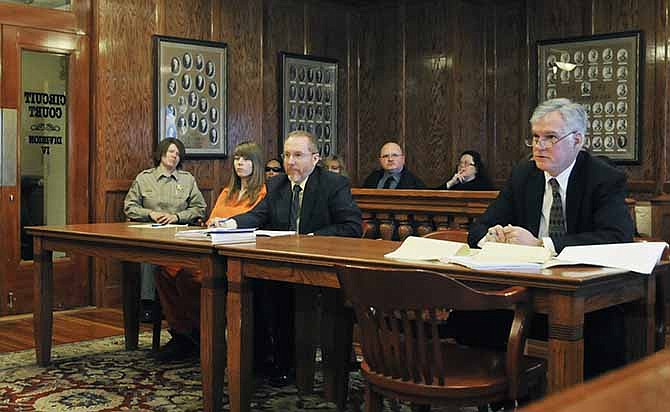JEFFERSON CITY, Mo. (AP) - More than 80 people convicted of first-degree murder as juveniles are serving mandatory life sentences in Missouri prisons - a punishment that the U.S. Supreme Court has deemed cruel and unusual.
Now Missouri officials are trying to figure out what to do with them.
Legislation introduced this past week in the state Senate would let each of those inmates ask a judge for a new sentence. A lifetime in prison would no longer be automatic, but it could remain a possibility when courts re-consider the appropriate penalties for children who kill.
The new round of sentencing hearings is necessary because Missouri's current law allows people convicted of first-degree murder to be sentenced to death or life without parole. A U.S. Supreme Court decision in 2005 said death sentences for juveniles are unconstitutional, leaving life without parole as the only sentencing option for Missourians younger than 18 who are convicted of murder.
But in June 2012, the high court struck down mandatory life without parole sentences for juvenile offenders. It said courts needed to consider other factors, such as age and maturity level, when sentencing juveniles.
"All of science shows that juveniles are different. The reality is that they are different in brain development and their ability to make decisions," said Senate Minority Leader Jolie Justus, D-Kansas City.
The legislation introduced this year would allow those Missourians convicted as juveniles and currently serving life without parole sentences to immediately ask the court for a new sentence. It would also set new sentencing guidelines for juveniles convicted of first-degree murder starting in 2016.
While the 83 people currently in prison for first-degree murder are directly impacted by the high court's decision, it could end up having a much broader effect.
Alyssa Bustamante pleaded guilty to killing her young neighbor just west of Jefferson City in January 2012. But she testified this past week that she wouldn't have accepted the plea deal for second-degree murder if she had known a U.S. Supreme Court case could wipe out the potential for her to receive an automatic life sentence without parole. She was initially facing a first-degree murder charge.
The Legislature's proposal last year to fix the law failed during the closing days of session. It would have allowed juveniles to serve life without parole or get a life sentence with a chance of parole in 50 years. At the time, opponents argued a minimum 50-year sentence would guarantee life behind bars, violating the Supreme Court's directive.
New guidelines in this year's legislation would still leave life without parole or a 50-year minimum prison term on the table for 16- and 17-year olds, but it would also let younger offenders receive lighter sentences.
"I feel like that is a very reasonable approach and probably a better approach than what we had last year," said sponsoring Sen. Bob Dixon, R-Springfield.
Under Dixon's bill, offenders younger than 16 could be sentenced to a prison term with parole eligibility after 35 years. They could still receive a life without parole sentence, but only after the court considers their age, mental capacity, maturity, character, the nature of the murder and prior criminal history. A court would also have to consider those factors when sentencing someone older than 16.
But some offenders aren't waiting for the Legislature to act and are taking their case to court.
In July, the Missouri Supreme Court granted a new sentencing hearing for Laron Hart, who was convicted as a juvenile in a 2010 St. Louis shooting and sentenced to life without parole. The court said a trial judge would need to consider additional factors about Hart to determine if his sentence was appropriate. If not, Hart would need to be found guilty of second-degree murder and sentenced accordingly.
Other states also have been working to adopt new sentencing guidelines for juveniles. California Democratic Gov. Jerry Brown signed a bill allowing judges to reduce sentences to 25 years to life if an inmate shows remorse and is working toward rehabilitation. In Iowa, Republican Gov. Terry Branstad commuted all juvenile life sentences to 60 years.
Juvenile Offenders is SB 790
Online:
Legislature: http://www.moga.mo.gov

